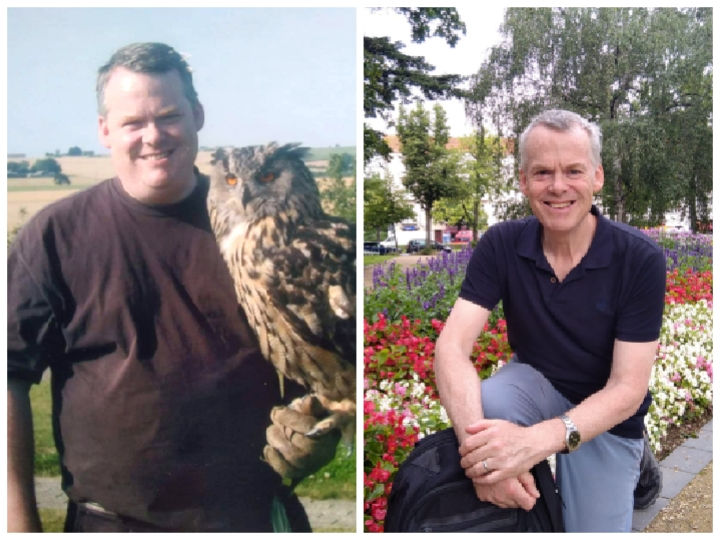Do Your Genes Influence Your Sleep?
- Henry & Henry

- Oct 25, 2023
- 6 min read
Updated: Oct 26, 2023
The answer to the question is ‘maybe’, you may be genetically predisposed to sleep well … or not so well, but a genetic predisposition doesn’t need to be a source of hopelessness. And equally, those of us who struggle with insomnia do not need to read only bad news about the effects of poor sleep! There is good news and there are steps we can take. Somewhat bafflingly, however, this information is hard to find from the obvious sources. This post then contains information I would love to have read when I needed it most.
Clickbait Journalism and Sleep Issues
A very recent study, reported across various newspapers, suggests the likely involvement of our genes in how well (or not) we sleep and how a lack of sleep, specifically less than 5 hours, is strongly linked with the development of depression. I abhor the type of journalism that latches onto stories that can easily become clickbait headlines, with little to no further examination. This just leaves people feeling worried, anxious and scared about their own inner world, and at a time when the outer world seems to be spinning out of control! Across the versions of the story that I found, only The Guardian included a more helpful quote, this one, from the first author of the research:
“There’s this common saying in genetics that genes load the gun and environment pulls the trigger. You might be genetically predisposed to this, but you can take steps to mitigate the risk.”
Great, and absolutely true. But what steps? None were given in this article. Other newspapers made some references to sleep hygiene which isn’t irrelevant, but why tinker around the edges when there’s something much bigger that has the potential to a) potentially assist with improving sleep and b) to help those who still can’t sleep despite their best efforts?
Good News Stories, Backed by Studies
I’ve written about this before in a post entitled When You REALLY Cannot Sleep, so I won’t revisit that research, but there’s new information to add to the already encouraging study results I referred to about slow breathing and melatonin production as well as the effect of slow breathing on the flow of the ‘brain-cleansing’ cerebro-spinal fluid. There are references included in that post.
Since this post started with a reference to a study that’s unlikely to fill anyone with joy, how about another, also from this year, that just might? This one demonstrated a reduced risk of Alzheimer’s in adults, young and old, who regularly stimulated their vagus nerve, specifically by practising slow breathing*. This is exciting news for anyone who is sleep challenged and finds themselves reading the horror stories about what will befall them by not sleeping enough. Alzheimer risk is always one of these.
Vagus Nerve Stimulation?
It’s well worth knowing a bit more about the vagus nerve as it’s entirely relevant in the context of sleep and much more. This large cranial nerve (the largest of them, in fact) wanders pretty much throughout the body, hence its name ‘vagus’, meaning wandering, it’s the stem also of the more commonly known word, ‘vagabond’. It conducts nerve impulses to every organ of the body and most of the information between the body and the brain is in that direction i.e. about 80 to 90% of the information goes from the body to the brain. Stimulating it, which is very easily done via breathing, can reduce anxiety, depression and even inflammation which is known to be involved in a majority of illnesses. And there’s more.
Vagal nerve stimulation triggers the release of the first ever recognised neurotransmitter Acetylcholine which slows heart rate, dilates blood vessels and has a role in cognition and memory. This takes us back to Alzheimer’s because patients with the condition are typically deficient in this neurotransmitter. Would vagal nerve stimulation help here?
And the good news keeps coming because it isn’t a case of losing the effects once you stop the treatment (eg. the slow breathing exercise), the effects are on-going. By regularly practising slow breathing, you’re strengthening your vagal tone. So, just what is the relevance for sleep and especially inability to sleep and how does breathing fit in?
Sleep and Breathing
The worst case scenario where sleep is concerned is simply not being able to, night after night after night. Falling asleep may be problematic or staying asleep may be the challenge. I’m not going to tell you that if you get your breathing right, you’ll sleep like the proverbial log because there are way too many reasons for sleep challenges. I can tell you with a little more certainty, however, that if your breathing is dysfunctional, as it is for about 60 - 80% of the adult population, there’s a strong chance that your sleep could be improved. And why wouldn’t you try? Can you think of a reason to allow a bad situation to be worse than it needs to be?
Even if you’re on the road to improved sleep, you may still experience long periods of wakefulness. There can be no better time to practise slow breathing than during one of these unwelcome gaps in your sleep (although ideally, it shouldn’t be the only time you practise if you’re serious about making progress). And do breathe exclusively through your nose, both in and out. By doing this, you’ll be instigating the parasympathetic nervous system which is the rest and digest part of the nervous system, the one with the calming effect. This is going to be especially beneficial if your wakefulness is accompanied by a busy mind which may well include sleep anxiety, i.e. stress about not being able to sleep! If you’re practising fairly regularly, you’ll be contributing to improved vagal tone the effects of which you may well start to notice during the day. Such effects may include a reduction in what many of us experience as a background hum of anxiety. And of course, improved vagal tone is likely to be a helpful contributor to better sleep in the long term.
Non-Sleep Deep Rest
Slow breathing in conjunction with a body scan as a means of compensating for a proportion of lost sleep is recommended by neuroscientist Andrew Huberman. It’s called Non-Sleep Deep Rest, and is inspired by yoga nidra. Since most of us experience at least occasional sleep disruption, this is another intervention that is likely to prove useful either whilst lying awake or later in the day, if time permits, such as before doing something which is best carried out without the effects of extreme tiredness. And again, because of the slow breathing element, vagal tone is being strengthened by doing this. This makes a difference to me, as well as occasional daytime naps, although I’m glad to report I require them increasingly less!
A Word of Caution
There’s just one word of caution before ending this post. Achieving slow breathing is easily achieved by taking big breaths, but unless you have functional breathing (which is unlikely in someone with chronically impaired sleep), by taking in a large volume of air, you will be reinforcing a biochemical imbalance which will keep your breathing dysfunctional. I strongly recommend that your slow breathing is also light breathing, because the volume of air going into your body matters. Ensure that your practice fits you rather than trying to achieve a target number of breaths that you may read about somewhere, certainly in the early stages. And if slow breathing prompts a panic response (which is certainly possible for anyone with anxiety and panic disorder), I urge you to seek assistance in addressing your breathing. Addressing it can be very freeing.
Don’t let your breathing hold you back by allowing it to worsen, or even cause, a problem. And please try to look beyond any potential genetic link to your sleep challenges. Any such link is a new development which indicates that it is not fixed. Did our ancestors sleep as poorly as many of us do today? No, they did not, which means that just as chronic insomnia has become a feature of modern life, it can also, at least partially, be dismantled. You deserve to sleep, and when sleep eludes you, you deserve to reap the benefits of gentle slow breathing.
~Annette Henry
Finding a Practitioner if Help is Needed
For a Buteyko Clinic practitioner near you, find one whose description chimes with you on the Worldwide Practitioner Page Many practitioners also work remotely as we do at Henry and Henry for those not based in Berlin. Our information is on the Breathing Space page of our website. Or you may wish to proceed directly to the Buteyko Breathing page to find out if I might be suitable for your breathing retraining requirements.

Sources:
Additional information sourced from The Breathing Cure by Patrick McKeown.



)_20230830_134131_0000.png)



Comments